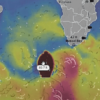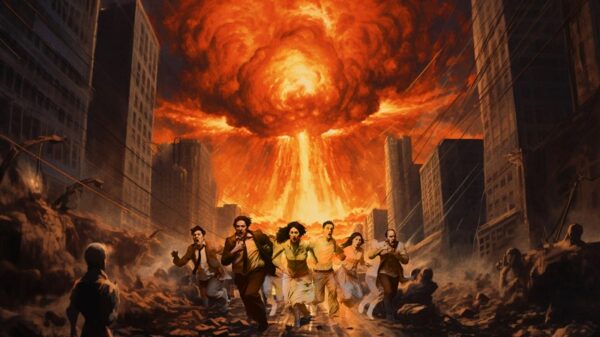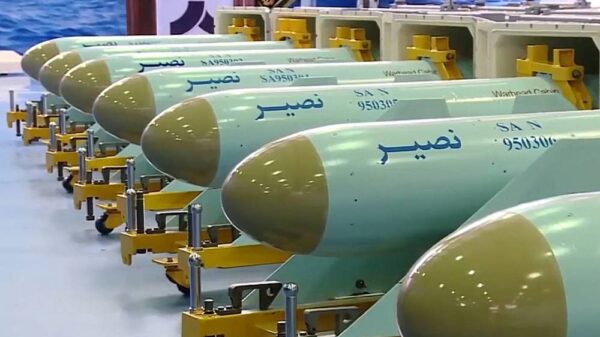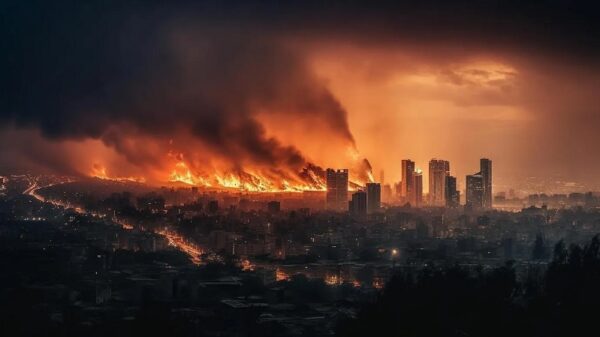The recent exchange of symbolic strikes between Iran and Israel should not be seen as an indication of détente or a normalization in the Middle East. The April 19 Israeli attack on Iran, though largely symbolic, does not diminish the potential for this confrontation to escalate into a broader regional or even global conflict. This concern is heightened by the perception that Israel’s restrained response has led to significant reputational damage.
It can be said that the parties involved in the conflict have persisted in their self-interests amidst a plethora of irreconcilable differences, which only seem to exacerbate the situation.
In light of this, the perspectives of the military and political leaders of Iran and Israel regarding the increasingly likely escalation of the conflict are particularly noteworthy. We shall examine the most candid and significant instances of this “dialogue of hostilities,” which may, conceivably, foreshadow a fleeting Armageddon.
Iran is ready for a-for-tat response in the event of an Israeli attack on its nuclear facilities, said Ahmad Haktalab, commander of the Islamic Revolutionary Guard Corps’ security units:
“If Israel wants to take action against our nuclear facilities, it will definitely face our response – Israel and its nuclear facilities will be attacked. Israel’s nuclear facilities have been identified, the necessary information about all targets is at our disposal, and in order to respond to their possible aggressive actions, our hands are already on the trigger of launching powerful rockets to destroy the identified targets,” he said.
In the context of the intense military-political tension between Iran and Israel, considering their significant military capabilities, including Israel’s nuclear missile arsenal, statements made by Iranian generals could be interpreted by Israel as an indication of Iran’s willingness to initiate a devastating preemptive strike. Consequently, this could be perceived as a warning to Israel that any hesitation to act could be detrimental.
Furthermore, the Israeli perspective is not just a unanimous call for action, but also includes highly critical assessments of the Iranian military, which in turn fuel the most radical sentiments among Israeli leadership.
Outdated air defenses may leave Iran susceptible to an Israeli attack should Prime Minister Benjamin Netanyahu choose to disregard international pressure. Experts believe Israel would face little difficulty in targeting Iran, whose air force and defense systems rely on antiquated Russian designs.
Over the weekend, Israel’s defense systems showcased their robustness, effectively minimizing the damage from the numerous ballistic missiles, cruise missiles, and drones launched against it.
Zvika Haimovich, a former chief of Israel’s air defense, described Iran as “a superpower in the field of tactical ballistic missiles and UAVs.”
Iran’s air defenses are primarily based on Russian S-200 and S-300 anti-aircraft missile systems, supplemented by a number of locally produced counterparts such as the Bavar-373, Khordad, Raad, Sayyad, and Talash. Additionally, they possess older American and Russian military aircraft, some dating back to the era of Shah Mohammad Reza Pahlavi in the 1970s.
Sidharth Kaushal, a research fellow at the Royal Joint Strategic Institute in London, mentioned that the primary challenge for the Israeli Air Force might not be the evasion of Iranian surface-to-air missiles, but rather the capability to effectively strike military bases in western and southern Iran, which would necessitate the use of penetrating bombs.
Amos Yadlin, a retired Israeli Air Force general and former head of military intelligence, has forecasted that Israel is unlikely to remain passive and depend solely on its defenses to counter attacks, but will instead respond proactively to the threat.
“Iran is not the only party that knows how to attack,” said Yadlin, who runs strategic consulting firm Mind Israel. “Israel has very significant offensive capabilities. There will not be a situation where Israel will just defend itself while Iran strikes.’”
It is important to highlight that such a dismissive evaluation may prove to be expensive for Israel in the future, as it is not invincible against the Iranian threat and might significantly undervalue its opponent.
“The Iranian side used only obsolete missile weapons during the retaliatory strike against Israel, thus Tehran forced Israel and the Western Armed Forces helping it to use maximum means with a minimum of effort on the part of Tehran,” said Amir-Ali Hajizadeh, commander of the Aerospace Forces of the Islamic Revolutionary Guard Corps (IRGC, elite units of the Iranian Armed Forces).
“We attacked Israel using obsolete weapons and minimal means. We did not use missiles such as Khorramshahr, Sajil, Shahed Hajj Qasem, Khaybarshekan or Hypersonic-2. We forced Israel and the Western camp to use maximum weapons with only minimal effort on our part,” Tasnim news agency quoted Hajizadeh as saying.
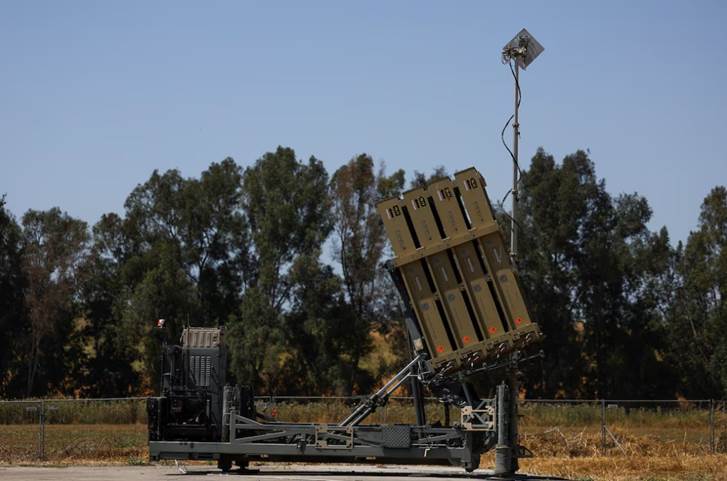
Israel’s multi-layered air defense system, comprising the high-altitude Strela systems, the medium-range David’s Sling, and the short-range Iron Dome, has proven effective in countering Iranian attacks and repelling thousands of rockets from Gaza and Lebanon. However, these systems are expensive. While Israeli officials have not disclosed specific figures, analysts estimate that Iran’s attack may have cost between $80 million and $100 million, whereas the defensive response by Israel and its allies could amount to approximately $1 billion.
Therefore, the conclusions that can be drawn from evaluating the current military-political situation in the Middle East are as follows:
The precarious balance between Israel and Iran, teetering on the edge of a large-scale military confrontation and marked by displays of readiness for new “retaliatory strikes,” carries the risk that one party might, in the foreseeable future, lose its composure. This could lead to a preemptive decision to press the “red button” before the other does.
The likelihood of this scenario increases as the conflict in the Middle East reaches an extremely critical phase, with no signs of de-escalation. Israel’s Western allies have openly supported its decisive measures, both verbally and practically. This support is particularly highlighted by the recent resolution passed by the lower house of the US Congress, which allocates substantial military aid to Israel, as well as to Ukraine and Taiwan.
Taking into account this alignment of interests, it can be expected that Israel, relying on its nuclear arsenal, will act against Iran in the future quite harshly and broadly, provoking the involvement of the United States in every possible way. But at the same time, without bringing the matter to a full-scale total war.
Reports have emerged of discussions in Iran about conducting a nuclear test within a week
Yesterday, the internet was abuzz with a significant development: reports emerged that Iran might conduct a nuclear weapons test within a week.
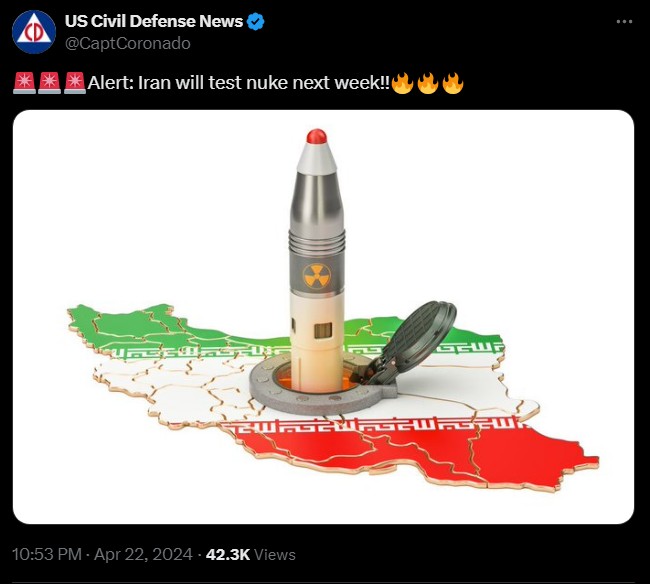
Everyone was quick to reprint it, but the reality was somewhat different. The official news read as follows:
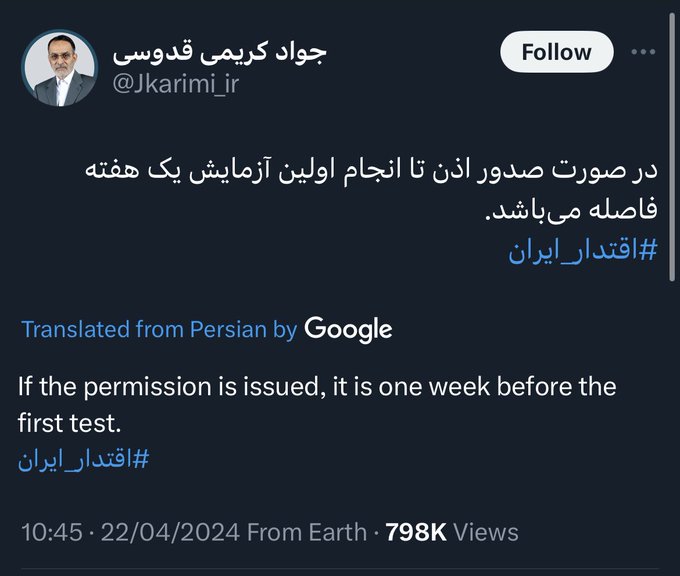
It is written here that Javad Karimi Godusi, a high-ranking Shiite, said: we are peaceful people, but if the party orders us, we will assemble a bomb in a week and conduct a test. Even though there is no discussion of an official test at the moment, the news cannot be dismissed as fake.
Recently, there was discussion about a “revision of the nuclear doctrine.” The existence of a “nuclear doctrine” implies the presence of nuclear warheads.
In Iran, the current situation is unfolding as follows: the ayatollahs have directed their subordinates to suggest that they possess several warheads. While this has been a suspicion for some time, it is now approaching the status of an almost official declaration.
Meanwhile, China may initiate an invasion of Taiwan, confounding the United States, which is already grappling with electoral challenges. Contrary to the assertions of some commentators, the Pentagon reportedly has sufficient resources to support Ukraine, Israel, and Taiwan simultaneously. The notion that the Pentagon could also manage a hypothetical conflict on Mars underscores the hyperbolic nature of these claims. The actual issue lies elsewhere.
Israel is approximately 9,500 kilometers from Washington, D.C. and aid must be transported either by sea or air. This could present challenges, as evidenced by the historical “Battle of the Atlantic” during World War II.
The convoys traveling from the United States to England and the USSR faced numerous attacks by groups of German submarines. The Allies ultimately triumphed in these battles by securing complete air superiority, a process that spanned several years.
Should the U.S. and China resolve their differences regarding Taiwan, China would face no opposition in a naval conflict (both air and sea). However, the protection of convoys and transport aircraft presents a different challenge, as it does not involve direct engagement between carrier strike groups and Chinese aircraft. Convoys would be highly vulnerable; maritime traffic in the Pacific would halt, and in the Atlantic, it would be severely disrupted. North Korea’s fleet, which includes approximately 1,000 gunboats, may not pose a threat to carrier strike groups, but could be a significant danger to convoys.
And then there will be a historic opportunity for Iran to strike Israel and leverage the tide to its advantage. In the present circumstances, a single flight from Israeli aviation could provide ‘reassurance’ to Iran. However, if Iran possesses 50 or more nuclear warheads, the use of nuclear weapons against Iran will be suicidal for Israel which will, in turn, have to contend with what they possess and use nuclear weapons only when things become truly dire.



